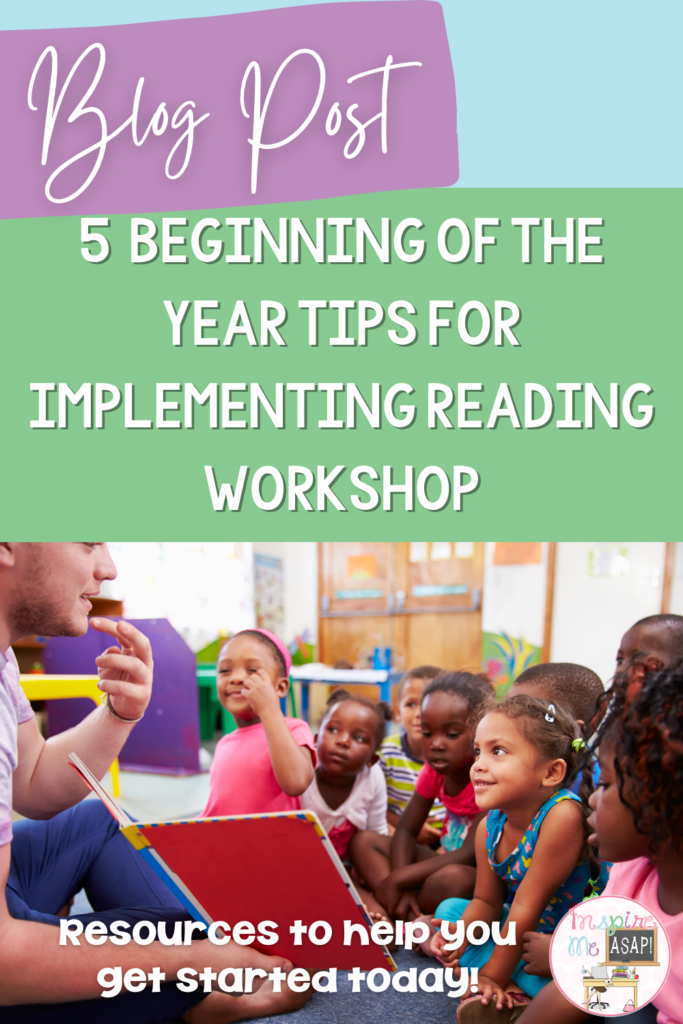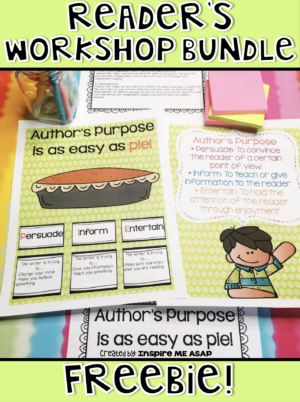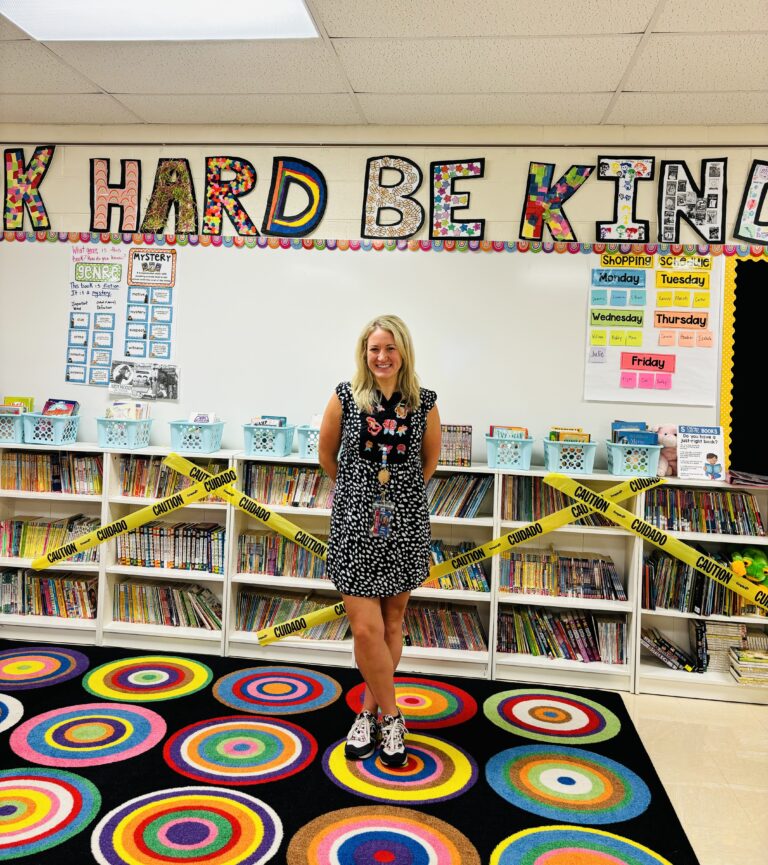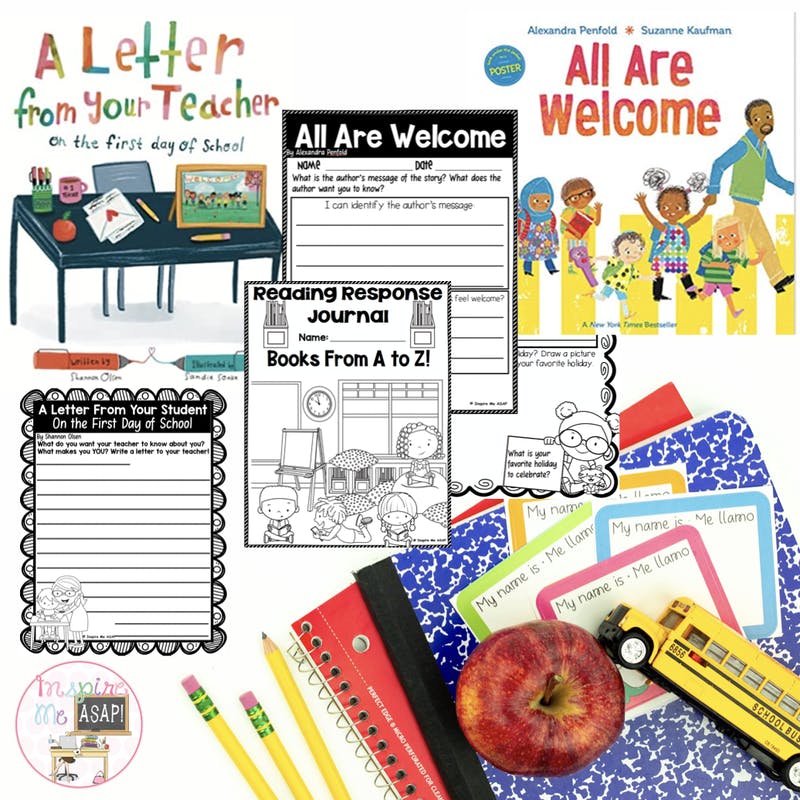The beginning of any school year can be overwhelming no matter how long you have been teaching. In today’s blog post, I wanted to share with you some tips and reminders as someone who has been doing reading workshop with my students for several years.

Before we get started, let’s remember the goals of reading workshop.
During Reading Workshop:
- It follows a consistent structure everyday: 15 minute mini-lesson, 40 minutes of independent reading, and 5 minute closing/sharing
- Readers talk adn write about books
- Readers have a respect for books, others, and reading time
- The teacher provides a mini-lesson daily and meets with students in groups or individually
- Readers shop for “just right” books in the classroom library and the school library
- Readers read everyday
- Students are engaged in authentic, meaningful literacy activities.
The ultimate goal of reading workshop and reading class in general should be that that they will experience and develop a love for reading that they carry with them through life.
If you want to learn more about how to set up reading workshop in your classroom check out this Introduction to Reading Workshop blog post. This is the first in an 8 part blog series ALL about reading workshop and specific steps to implementing it into your classroom daily practices!
(Maybe add pin from this blog series?)
Below is a list of my top 5 tips for implementing reading workshop in your classroom.
#1 Don’t Skip Procedural Mini-Lessons Before Starting Reading Workshop
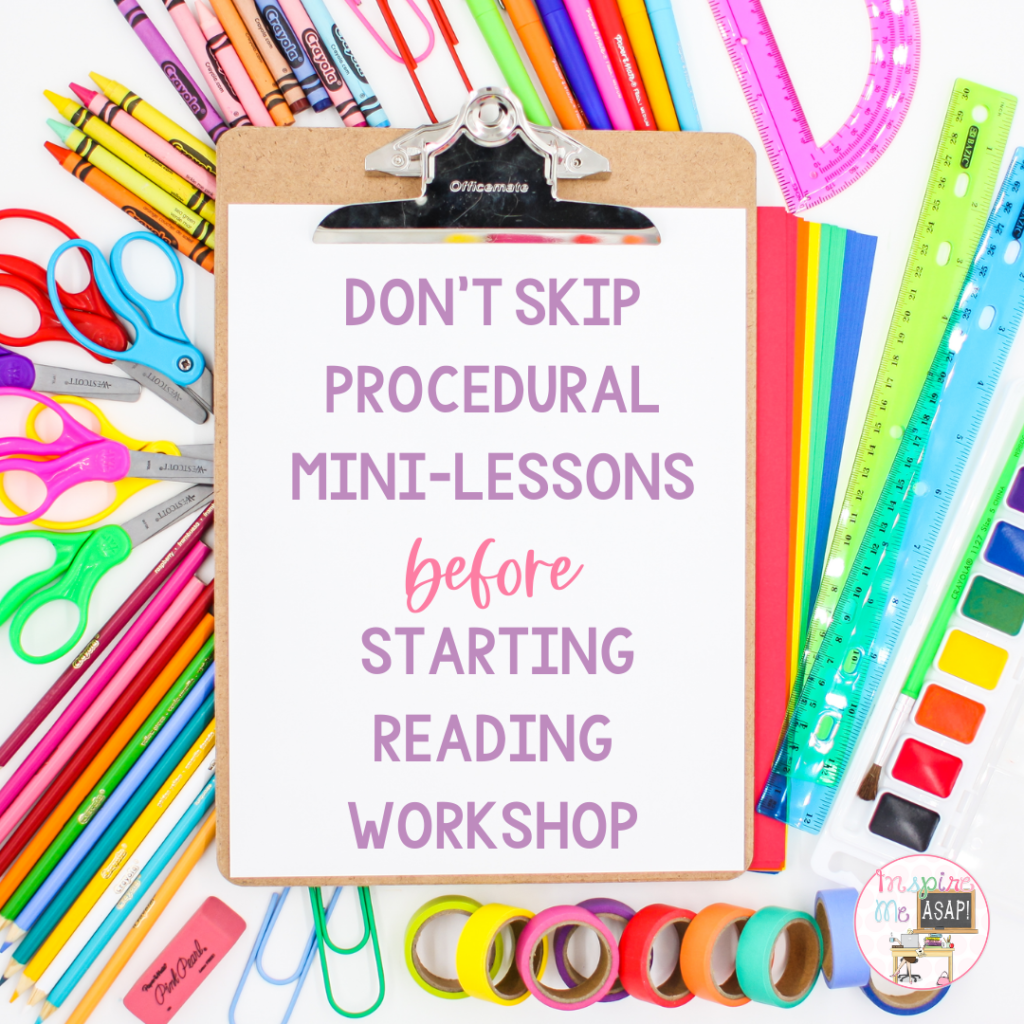
Before jumping in to reading workshop on the first weeks of school, instead spend about 2-3 weeks teaching the following lessons in preparation. Students need to understand all the expectations first, so reading workshop can flow smoothly.
- Readers identify the structure of reading workshop- mini-lesson, independent reading, sharing/closing.
- Readers identify and follow reading workshop expectations to build reading stamina.
- Readers use book nooks to organize all of their reading workshop materials.
- Readers choose just-right (or appropriate) books from the classroom library on their assigned shopping day.
- Readers reflect on their growth as a reader.
A complete list of procedural mini-lessons that I teach are included in my Reading Workshop Unit One Resource. This resource will take you step by step by listing different mini-lessons that you will teach to make reading workshop a success! Most importantly, it will inspire your students to develop a love for reading time. There are 23 mini-lessons that are included in this file, which focus on establishing routines and setting expectations for implement reading workshop with your primary students.

#2 Focus on Creating a Sense of Excitement About Reading and Reading Workshop
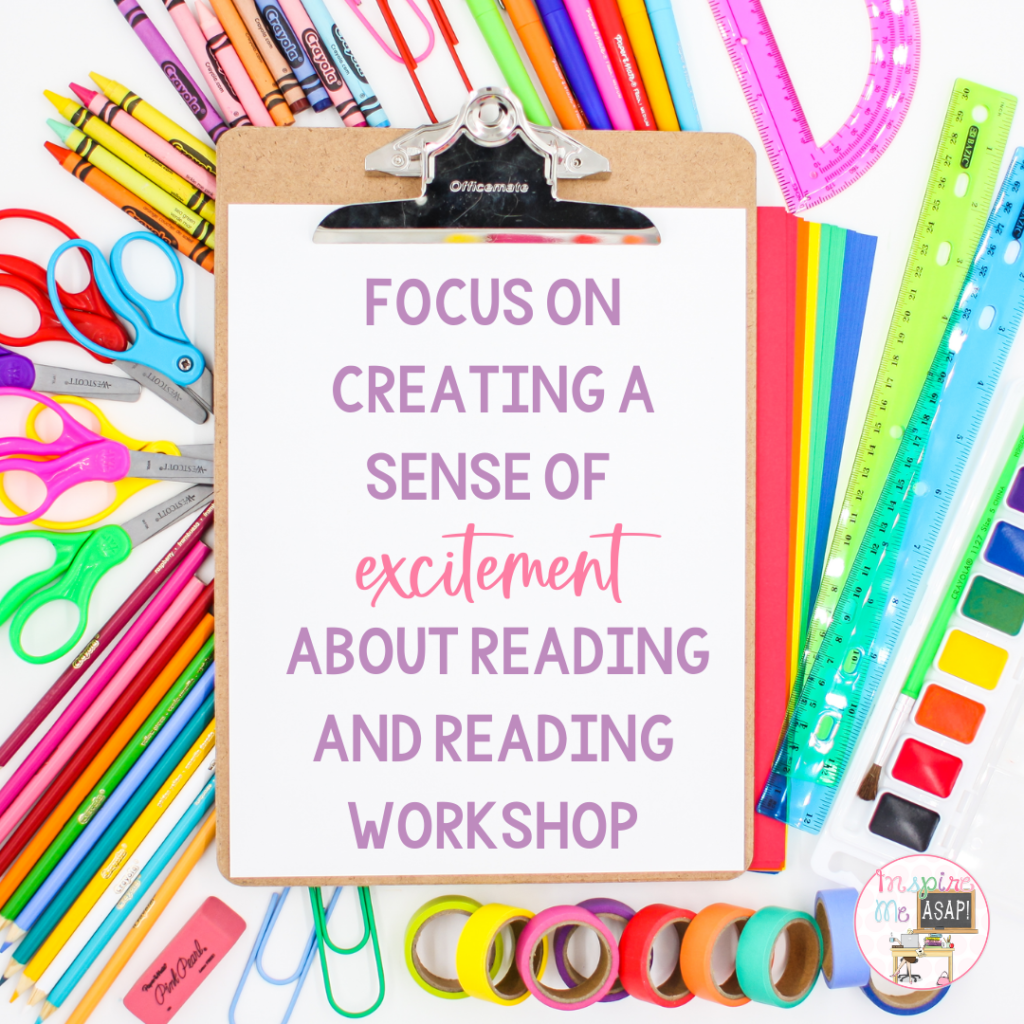
Even though we are spending a lot of time setting expectations for reading workshop during the first few weeks, don’t forget that the main goal for any group of students is for them to develop a love of reading! So, make sure you are giving them time to read and explore different genres of books. Many times, when students don’t enjoy reading, they just haven’t found the right book.
Think of ways to incorporate fun into reading time. You could build anticipation for the classroom library opening using caution tape. (see more on that here). You could turn out the lights and let students use flashlights, let students pick a spot to sit, or even just play instrumental music in the background. Have stuffed animals or pillows? Let students sit or lay on a comfortable pillow and read to the stuffed animal. You could even read the first page from some of your favorite books and display them at the front of the room for kids to borrow. Get creative! Think about what your students might enjoy.
#3 Spend Enough Time Setting Expectations, Modeling, and Practicing Reading Workshop
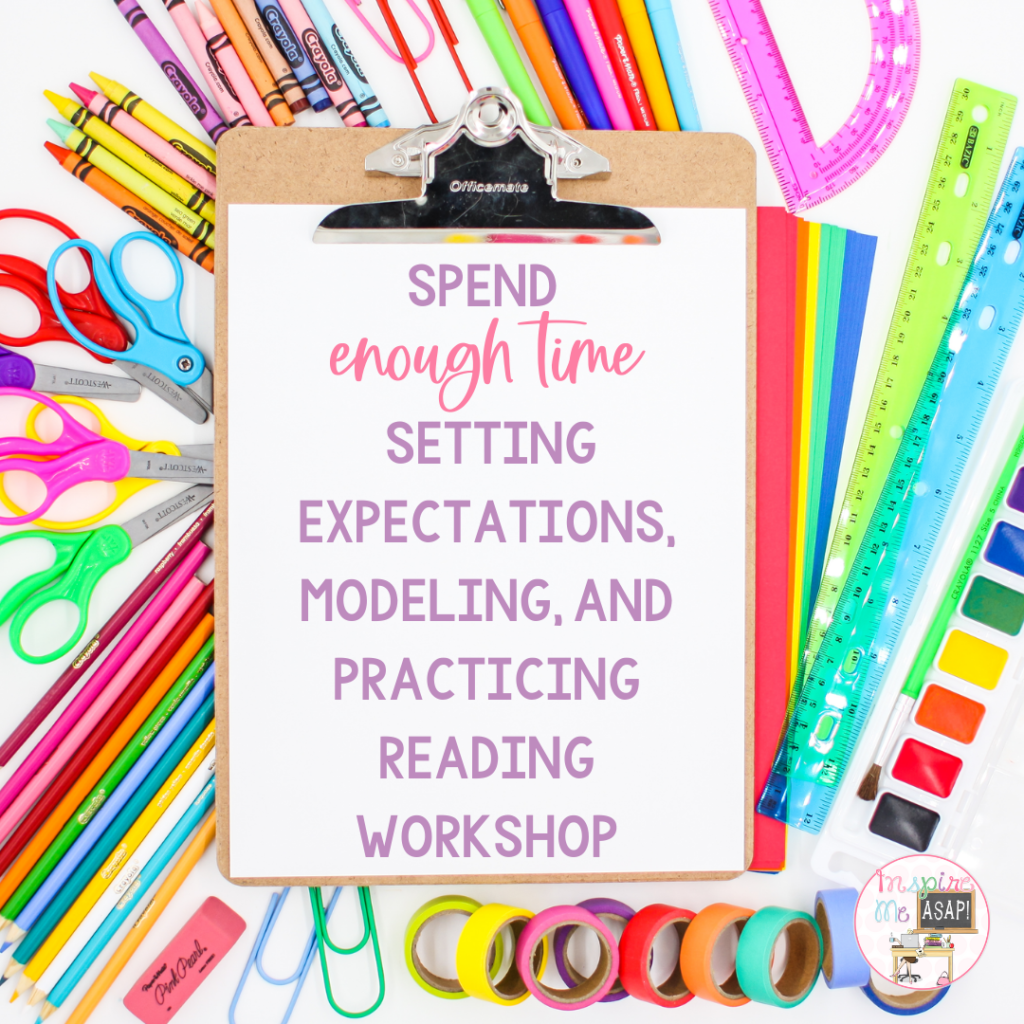
Many times at the beginning of the year, it is easy to feel rushed to get to other curriculum. Trust me, spend the time making sure your students know what is expected of them during reading workshop time. You will save tons of time throughout the year correcting behavior when you should be meeting with small groups, etc.
Model what to do and even what not to do. Have students point out the mistakes you made as you put a book back incorrectly, or shout out when you should be reading. Not only do students find this hilarious most times, it reveals important points and contributes to great class discussions about why that is not helping the class learn as a whole. Also, students generally need to practice for themselves several times while you observe before you even meet with groups.
#4 Get to Know Your Readers
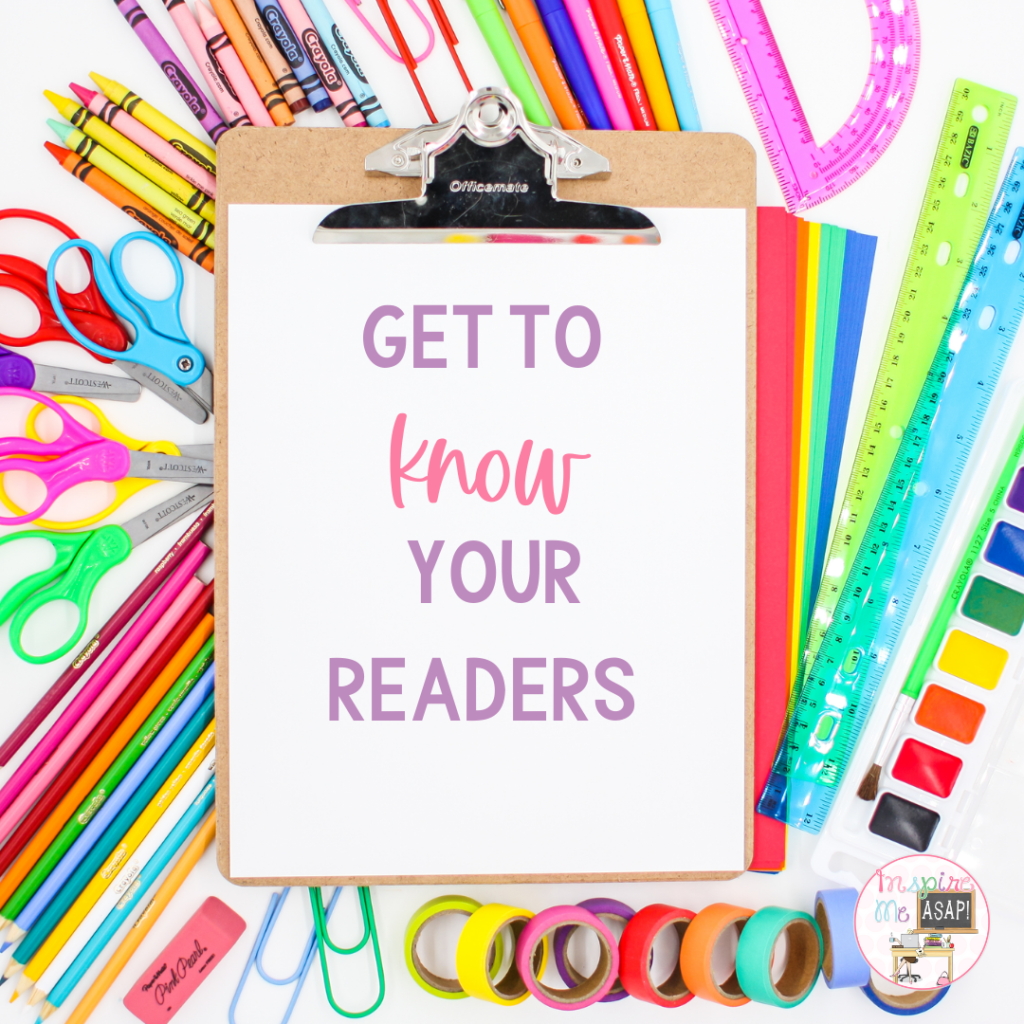
At the beginning of the year focus on spending time with each child in your class. Get to know them as a person and as a reader. Relationships go a very long way with students. If they know and trust you, and you show an interest in getting to know them, they will be much more likely to not only learn from you, but be invested in their own learning.
Have them tell you about the book they picked that day, ask if they like dogs since they chose a book about them, have them read a paragraph to you and informally assess their reading skills. Get to know your students.
#5 Keep it Simple
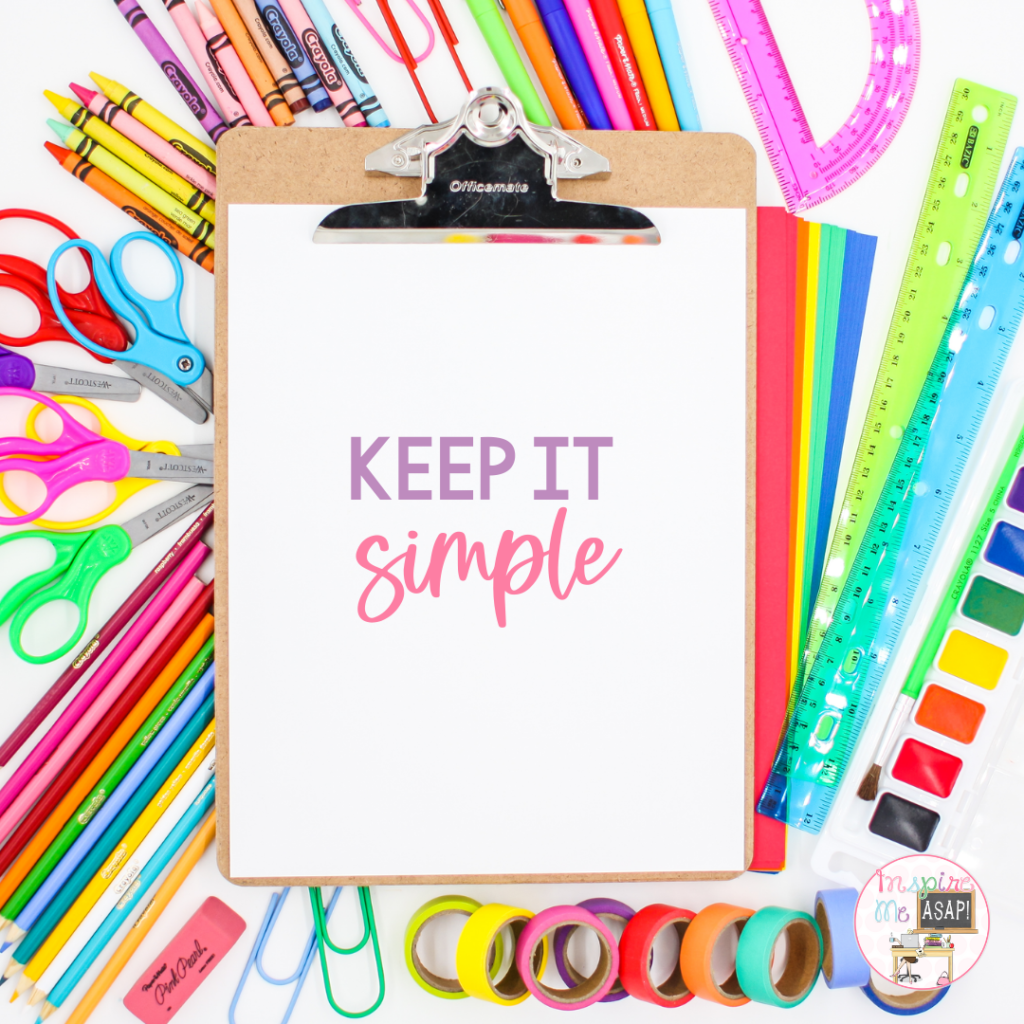
Do not overcomplicate reading workshop time. Focus on the main goals we talked about at the beginning of this blog post and give yourself grace.
If it seems like too much, try adding one element per day. Create a schedule and stick to it. The students will likely hold you too it after a while too!
Looking for More?
Check out this All About Implementing Reader’s Workshop blog post! It has several videos walking you through some of the most important lessons in setting up reading workshop!
I also have a yearlong bundle for reading workshop! With this reader’s workshop bundle, you will be ready to ROCK reading workshop for the entire school year! The first unit will set up the routines and procedures to run a successful reading workshop ALL YEAR LONG! You will then start to teach your students about metacognition strategies in Unit 2, implement reader’s notebooks in Unit 3, learn about the different text features for informational text in Unit 4, dive deep into character studies in Unit 5 and then wrap up the school year by implementing powerful and interactive book clubs!
Units included in this bundle:
Unit 1, Implementing Reading Workshop in your Primary Classroom
Unit 2, Reading Workshop: Reading is Thinking
Unit 3, Implementing Reader’s Notebooks
Unit 4, Informational Text Features
Unit 6, Diving Deep with Book Clubs
Reading workshop is one of the best things I have found that creates life-long readers. I hope you were able to get some useful tips to bring back to your classroom! What other tips do you have about implementing reading workshop at the beginning of the year?
